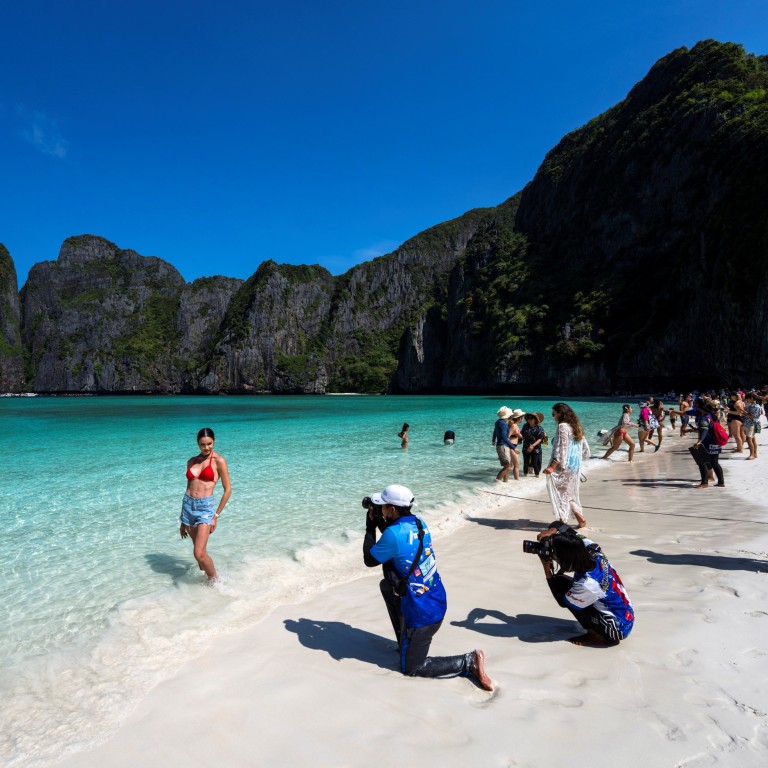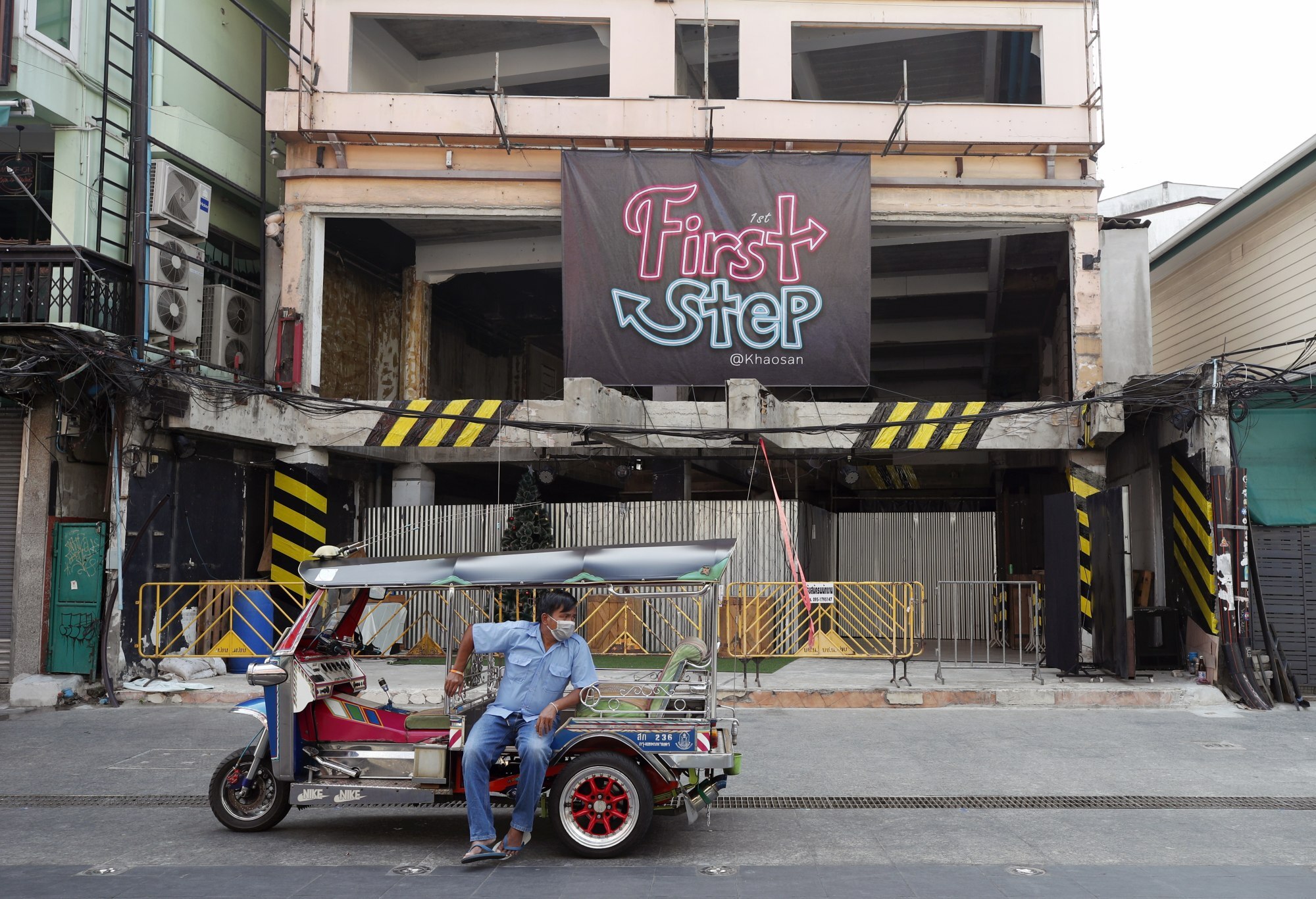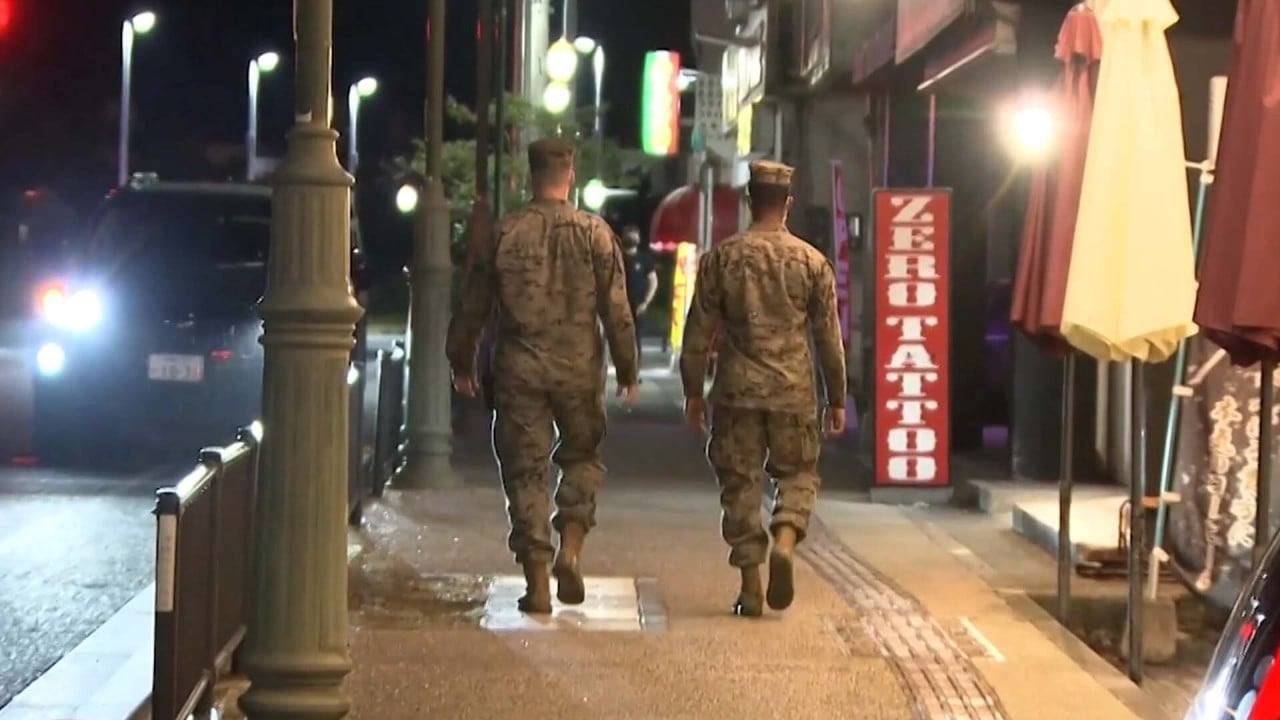
Coronavirus: Thailand scraps quarantine-free visas to fight Omicron; Japanese regions hosting American bases face curbs
- The virus task force said foreigners holding visas for quarantine waiver can’t enter Thailand after January 15 as the kingdom reported 7,526 new cases on Friday
- Elsewhere, Australia’s New South Wales state banned singing and dancing in hospitality venues amid a surge in Omicron cases
The nation’s main virus task force spared Bangkok, Phuket and six other tourist destinations from harsh containment measures but banned alcohol consumption at restaurants and other commercial establishments after 9pm.
Overseas visitors holding valid visas for quarantine waiver can’t enter the country after January 15, Taweesilp Visanuyothin, a spokesman for the task force, said at a briefing on Friday.
The fresh restrictions came after the Southeast Asian nation reported 7,526 new infections on Friday, the highest single-day tally since November 8, and a fourth straight day of increase. Health officials have warned that cases may rise rapidly following the New Year celebrations and community spread of the Omicron strain.
The tourism-reliant nation had relaxed most of its restrictions on businesses and lifted a mandatory quarantine requirement for immunised travellers late last year to revive an economy battered by the pandemic. But the Omicron variant has derailed the government’s plan to boost the travel sector and the economy.

Thailand will expand its so-called Phuket sandbox programme, a different quarantine-free entry process that requires visitors to spend the first week on the island before travelling to other parts of the country, to three other provinces including Krabi and Phang Nga, Taweesilp said.
The virus task force also appealed to people to avoid domestic travel and to work from home until the end of January after the Health Ministry on Thursday raised the nation’s Covid-19 alert level to the second highest. The panel also recommended lifting a ban on travel from eight African countries from January 11.
Prime Minister Prayuth Chan-ocha’s government is trying to ramp up the roll-out of booster shots, urging all residents who have completed their two-dose regime before November 1 to get their third jab immediately. Individuals at high risk are also eligible for a fourth shot, three months after their third dose.
Only about 10 per cent of the country’s 72 million residents have received three shots of vaccines, seen as key to providing some protection against the Omicron strain, while about 65 per cent have already received two doses.
Japanese regions hosting US bases face curbs
It would mark the first such measures since September, when Japan lifted emergency controls that had prevailed over the country for most of last year.
The plan was advanced by a government panel and health experts. Prime Minister Fumio Kishida is likely to grant official approval later in the day.
The Omicron variant has been found in about 80 per cent of Japanese prefectures, and coronavirus cases are surging. New infections exceeded 4,000 nationwide on Wednesday, compared with an average of about 200 per day last month.
“There are cases where there is no history of overseas travel and the route of infection is unknown, while the Delta strain also continues to spread,” Health Minister Shigeyuki Goto told reporters.
“We must be prepared for the rapid spread of infection in the future,” he added.
The new measures, affecting the southern prefecture of Okinawa and the western prefectures of Hiroshima and Yamaguchi, would last from January 9 until the end of the month.
All three regions host bases for the US military, which on Thursday announced stricter infection controls at Japan’s urging after on-base outbreaks appeared to have spilled into surrounding communities.
Governors of the prefectures had requested the quasi-emergency steps, which include limited opening hours for bars and restaurants, after seeing a surge in cases, driven by the Omicron variant.
The southern island chain of Okinawa, host to 70 per cent of US military facilities in Japan, has been the hardest hit so far, in what appears to be the nation’s sixth wave of the pandemic.
The prefecture is expecting more than 1,400 new cases on Friday, a record and up from 981 on Thursday.
“This number will likely stay high and steadily increase,” said Okinawa Governor Denny Tamaki, who has harshly criticised infection controls at US bases there.
Infections have also been on the rise in Japan’s major metropolitan areas. Tokyo reported 641 new cases on Thursday, the most since September 18.
Tokyo will strengthen countermeasures by directing restaurants to limit diners to groups of four, down from eight, the Kyodo news agency reported.
Singapore in talks with US after CDC description of Covid situation baffles experts
US to revise Singapore travel advisory
That designation surprised officials in Singapore. The city state maintains far stricter testing and social distancing measures than in the US, and its Ministry of Health posts detailed virus statistics, in English, online every day.
In response, Singapore said it would share its Covid-19 statistics with the CDC and the local US embassy. “Just to be clear, we know our situation very well,” Health Minister Ong Ye Kung told reporters on Wednesday.
Australian state reimposes restrictions
After containing the virus through lockdowns and tough border rules earlier in the pandemic, Australia is now suffering infection rates far higher than elsewhere in the Asia-Pacific region.
New South Wales (NSW) state Premier Dominic Perrottet postponed non-urgent surgeries and reinstated a ban on singing and dancing in clubs and pubs including in Sydney, the state capital and home to more than 5 million people.
“This is a challenging time, not just in New South Wales, but around the world,” Perrottet said on Friday, as people admitted to the state’s hospitals with Covid-19 nearly doubled to a record 1,738 in just over a week.
This could rise to around 6,000 by the end of this month under a worst-case scenario, but that would be still below hospital capacity, a modelling by NSW Health department showed. The hospitalisation numbers are expected to fall from February.
Why Omicron may be the final coronavirus variant of concern
NSW has clocked more than 100,000 cases over the past three days, higher than the total Delta infections reported between mid-June and late November, when the first Omicron case was detected.
Daily cases in NSW shot up to 38,625 on Friday, exceeding the previous pandemic high of 35,054 on Wednesday, from around 250 a month ago.
Omar Khorshid, the head of the Australian Medical Association, accused the premier of having a “let it rip” policy and criticised his decision to ease almost all tough curbs about a month ago after higher inoculations.
“There is no way they will turn this curve around until everyone is either immune or have caught the virus,” Khorshid told the Ten Network on Friday.
Australia reported record cases for the fifth straight day on Friday, with more than 78,000 infections. Thursday’s cases stood at 72,401. Since the pandemic began, it has recorded more than 762,000 cases and 2,321 deaths.
Reporting by Bloomberg, Reuters

